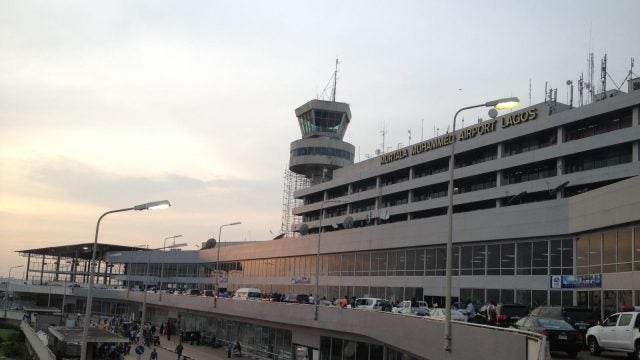Title: The Republican People’s Party (CHP) is Complicit in the Erosion of Democracy in Turkey
Turkey’s multi-party democracy is experiencing an alarming phenomenon: a complicit opposition in the Republican People’s Party (CHP). Overshadowed by the disproportionate media attention to President Erdoğan’s authoritarianism, the CHP does not receive enough (if any) credit for its role in the erosion of Turkish democracy and rule of law. The CHP, the main opposition in parliament since 2002, has repeatedly played into President Erdoğan’s hands at the most critical moments, enabling the advancement of an agenda against which it should have firmly stood.
Founded in 1919 by Turkey’s founding father Mustafa K. Ataturk as “the party of the state,” the CHP self-identifies as the social democratic party of the future with its roots in the Kemalist tradition and the founding principles of the Republic. Because safeguarding these principles is the core of its institutional identity, the party championed many undemocratic policies and practices over the course of its history such as promoting a ban on headscarves in public institutions and advocating for assimilation of all ethnocultural minorities. Thus, the party has traditionally been accused of having an elitist approach to politics, being out of touch with the society, and not having an appeal beyond “White Turks” – a pejorative term used to describe the urban, secular, progressive, and Western-minded segments of the population. Though the CHP never truly embraced its social democratic identity and radically reformed its platform to adapt to the changing Turkish population, after the failed coup in July 2016, it became ideologically confused and strategically lost. In doing so the CHP has repeatedly missed opportunities to resist Erdoğan’s agenda and failed to provide an alternative vision to the status quo.
With very little resistance from the main opposition, President Erdoğan and his Justice and Development Party (AKP) crippled all other political actors over their almost two decades in power. Even at his weakest, Erdoğan is the most dominant force in the Turkish political system, which other political actors—irrespective of ideology and creed—blindly orbit. In the current Turkish political alignment, existing parties have no choice but to give in to the AKP’s gravitational pull, unless they are deliberately shut out. For instance, the far-right, nationalist, and socially and religiously conservative Nationalist Movement Party (MHP) and the Great Unity Party (BBP) chose to join the AKP’s populist, conservative, and ultra-nationalist People’s Alliance. This pushed the social-democratic CHP to join forces with the nationalist conservative İyi Party, the Islamist Felicity Party (SP), and the liberal-conservative Democratic Party (DP) to form the Nation Alliance. The reactionary “Anti-Erdoğanism” principle unified these four ideologically distant parties, but it also represents a clear shift in the CHP’s trajectory and approach to electoral politics.
Sadly, this is not surprising to anyone who has followed the CHP closely in recent years. Not only has the CHP lost its ideological edge and become a party of anti-Erdoğanism, its promise to reverse two decades of destruction unleashed by the AKP on Turkish democracy and rebuild its adrift institutions also seems increasingly improbable. Two major missteps in recent years have already significantly undermined the CHP’s image as the vanguard of democracy, rule of law, and unity: its support for the politicization of the military and dehumanization of Kurdish politicians.
First, Erdoğan creates imaginary national security threats and engages in a series of military incursions in Syria and Iraq to boost his popularity among his nationalist, conservative base. Surprisingly, these operations received broad support from the chairman of the CHP, Kemal Kılıçdaroğlu in the past. In a display of mental gymnastics, the senior leadership of the CHP somehow divorced their criticism of Erdoğan for meddling in crises beyond Turkish borders from their vocal support for the use of military power against Kurdish communities in northern Syria.
Similarly, in 2016, the CHP voted alongside the AKP and the MHP to lift parliamentary immunities, which was a front to target Kurdish politicians, many of whom are now incarcerated and/or in indefinite detentions waiting for a hearing. Before the vote, Kemal Kılıçdaroğlu stated that the CHP would support the bill despite its constitutional violation. Ironically, the bill is now also being stretched to bring unsubstantiated terrorism charges against members of the CHP. The CHP should have criticized these policies and actions that led to the death of Kurdish civilians in Syria and Iraq, opposed unlawful unconstitutional practices against Kurdish parliamentarians, and worked to improve the treatment and political representation of the Kurds, Turkey’s largest ethnic minority. Instead, it has openly capitulated to AKP’s policies, and enabled an anti-democratic agenda that contributes to Turkey’s decline.
The reason for the CHP’s sharp pivot to the right-wing policies and rhetoric may be because the party is in pursuit of an elusive electoral victory. The party is moving towards the new center of the political spectrum – perhaps more than a few notches the right of center – and is courting socially conservative, nationalist, and even Islamist voters that are turned off by the AKP and the MHP. In fact, an analysis of the policy positions of Turkish political parties would yield a bell curve with parties of all creeds piling on top of each other at this new center. The predominantly Kurdish, Peoples’ Democratic Party (HDP), which is not a part of either alliance despite being the third-largest party in terms of electoral margins, remains the only true left-wing party in the country. This spells trouble not only for the CHP but for the general state of Turkish politics as well.
Attempts to appeal to nationalist, conservative voters may lead to defections among CHP’s core voters – the left-leaning, educated segments of the middle and upper-middle-class citizens who are also staunch defenders of Kemalism and secularism. In fact, according to a recent poll, there is a visible voter shift from the CHP to the HDP, especially among the segments of the population that identify with liberal values. The CHP does not seem to be gaining popularity among the voters who are fleeing the AKP, either. As the AKP is also tanking in the polls, these voters seem to favor newly established parties of the former Prime Minister Ahmet Davutoglu and Deputy Prime Minister and Minister of Foreign Affairs Ali Babacan, both formerly of the AKP. A highly divided electorate will benefit the AKP, given the level of centralization and consolidation it has achieved.
In addition, recent polling shows a dramatic decline in President Erdoğan’s approval ratings and overall support for the AKP. The economy is extremely fragile, the government is failing to effectively manage the COVID-19 pandemic, and the military is involved in several unnecessary conflicts simultaneously. These issues are also driving growing criticism of the executive presidency, even among Erdoğan’s allies and supporters. Analysts are now entertaining the idea of a significant power shift and possibly even a CHP-led government after the next election cycle. This prediction is based, in part, on the dynamics of the AKP’s dramatic rise to power in 2002. Such premature conversations dominated the lead-up to the past few elections, as well, only for Erdoğan to further consolidate power. Indeed, even an all-time low of 30 percent support in opinion polls may not be as great a threat if approximately 7.5 percent of the CHP voters indeed prefer the HDP, and the new parties fail to gain further traction. This is rather ironic as the history shows that the CHP was able to claim electoral victories, only when it won over Kurdish voters.
The CHP’s Twitter handle reads, “Herkes İçin CHP,” or “CHP for everyone.” This could not be further from the truth. Despite its reformed public image and hollow nods to inclusivity, the CHP is not the antidote to the AKP. CHP’s appeal is not for the Kurdish minority; it is not for the social liberals; and it is not for disenfranchised voters seeking peace, unity, and transparency. What can a party offer to constituents if, when given the chance, it fails to stand up for the Constitution it claims to protect? How can the voters trust a party with serious contradictions between its statements and actions? How can a party convince voters that it is different than those in power if it is complicit in the growing authoritarianism, distrust, and division within a nation? The CHP is long-overdue for self-reflection, and perhaps new leadership that is in touch with its fellow citizens.
In the meantime, the party leadership must remember their role as the main opposition in an increasingly undemocratic administration and at least try to slow down the collapse of whatever is left of Turkey’s institutions instead of afflicting further damage.
. . .
Max Erdemandi (M.A., Duke University ’14) is a doctoral student in Communication Science and Social Cognition at the University of Maryland. Previously, he was a Sr. Faculty Specialist at the National Consortium for the Study of Terrorism and Responses to Terrorism (START) at the University of Maryland. He studies intercultural communication, public diplomacy, counterterrorism, and political extremism/radicalization. Mr. Erdemandi has bilingual fluency in Turkish and has given talks and published on Turkish elections, national security and grand strategy, and United States-Turkey cooperation on counterterrorism and regional security. You can follow Mr. Erdemandi on Twitter at @maxerdemandi.
The views and opinions expressed in this piece are those of the author and do not reflect the official policy or position of the University of Maryland, National Consortium for the Study of Terrorism and Responses to Terrorism (START), and/or any agency of the U.S. government. The author would like to thank Rhyner Washburn, Dylan Maguire, Aaron Tielemans for their feedback.
Recommended Articles

Africa accounts for approximately two percent of global air travel. Given the continent’s vast size and large distances between major trade hubs, enhancing intra-African air connectivity will be…

An estimated 7.9 million Venezuelans migrated abroad for the long term under President Nicolás Maduro’s rule as Venezuela’s political, economic, and social crises have deepened. Alongside rising Venezuelan migration, migrants…

Amid stalled U.S. federal climate engagement and intensifying transatlantic climate risks, subnational diplomacy has emerged as a resilient avenue for cooperation. This article proposes a Transatlantic Subnational Resilience Framework (TSRF)…